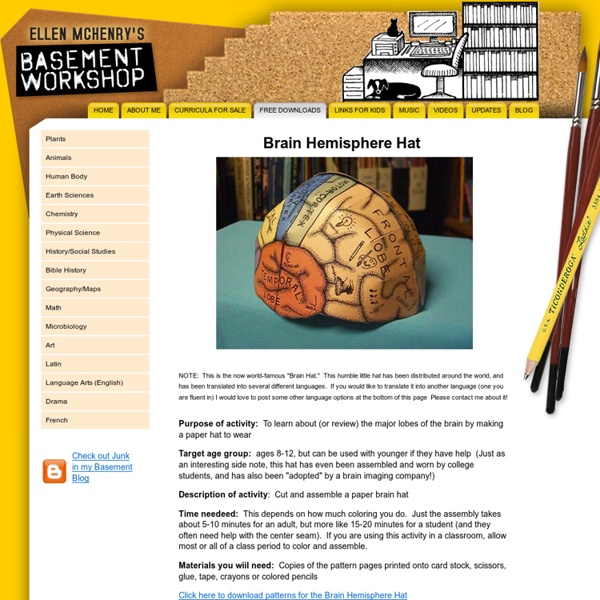Brain Hemisphere Hat (made of paper)

25 Odd Animals
These guys run the gamut of everything from silly looking creatures to curious animals to fear-inducing monsters! 1) Venezuelan poodle moth 2) Blobfish 3) Tufted deer 4) Pink fairy armadillo 5) Irrawaddy dolphin 6) Tube-nosed fruit bat 7) Lion’s mane-jellyfish 8) Snub-nosed monkey 9) Frilled shark 10) Wolf fish 11) Sunda colugo 12) Aye-aye lemur 13) Barreleye fish 14) Sea lamprey 15) Cyclops shark 16) Pangolin 17) Goblin shark 18) Yeti crab 19) Banded piglet squid 20) Saki monkey 21) Naked mole rat 22) Star-nosed mole 23) Uakari 24) Pygmy marmoset 25) Giant isopod Share these incredible creatures with your friends by clicking below. Source: Matador Network
Related:
Related:




Lesson for "brain hat' activity to learn and identify parts of the brain. Idea could be used for other body systems as well (lung vest, hand glove, ect.). by c.williams Jul 21